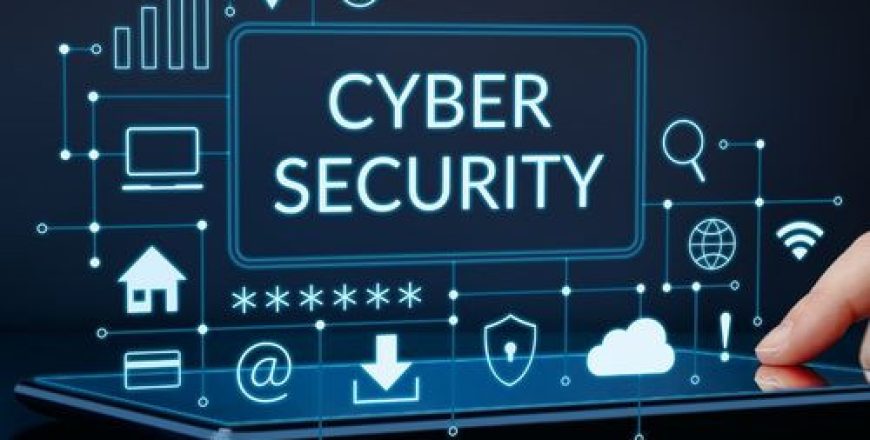Practical CYBER SECURITY with 3 months Internship work placement
- Description
- Curriculum
- FAQ
- Announcement
- Reviews

Course Outline
SecOps
1. Overview of security operations
2. Roles and Responsibilities
3. Red team vs Blue team
Security Monitoring and Incident Detection
1.Log Collection and Analysis
2. Log Collection Compliance
3. Security tools and Techs
4. Criteria to choose tools for secops
Incident Response and Handling
1. Introduction to Incident Response
2. Event Alarm Incident Breach
3. Incident Response Life Cycle
4. Incident classification
5. Operationalise MItre framework
Incident Response Excercise
1. Live demonstration of an L1 alert handling process.
SIEM
Microsoft Azure sentinel
Who is a cyber security expert
A cybersecurity expert, often referred to as a cybersecurity professional or cybersecurity specialist, is an individual with specialized knowledge and skills in the field of cybersecurity. Their primary focus is to protect computer systems, networks, and data from security breaches, attacks, and unauthorized access. The role of a cybersecurity expert is crucial in the modern digital landscape where the risk of cyber threats continues to grow.
Key responsibilities and areas of expertise for a cybersecurity expert include:
Network Security: Implementing measures to secure computer networks, including firewalls, intrusion detection/prevention systems, and virtual private networks (VPNs).
Endpoint Security: Protecting individual devices such as computers, smartphones, and servers from malware, viruses, and other malicious software.
Incident Response: Developing and implementing plans to respond effectively to security incidents, including analyzing and mitigating the impact of security breaches.
Vulnerability Management: Identifying and addressing vulnerabilities in systems and applications to prevent potential exploitation by cyber attackers.
Identity and Access Management (IAM): Managing user identities and controlling access to systems and data, often through authentication and authorization mechanisms.
Security Auditing and Monitoring: Conducting regular security audits, monitoring system logs, and analyzing security alerts to detect and respond to potential security threats.
Security Policy Development: Creating and enforcing security policies and procedures to ensure that an organization’s information assets are protected in accordance with industry best practices and compliance standards.
Security Awareness Training: Educating employees and end-users on security best practices, potential threats, and the importance of cybersecurity hygiene.
Encryption: Implementing encryption techniques to protect sensitive data both in transit and at rest.
Penetration Testing: Conducting ethical hacking activities to identify and address security weaknesses in systems before malicious hackers can exploit them.
Compliance Management: Ensuring that the organization complies with relevant cybersecurity regulations, industry standards, and legal requirements.
Cybersecurity experts may work in various roles and industries, including as security analysts, penetration testers, security consultants, information security officers, and more. The field of cybersecurity is dynamic, and professionals in this field need to stay updated on the latest threats, vulnerabilities, and security technologies to effectively safeguard information and systems. Certifications such as Certified Information Systems Security Professional (CISSP), Certified Ethical Hacker (CEH), and CompTIA Security+ are often pursued by cybersecurity experts to demonstrate their skills and knowledge.
-
1L350SM: Daily StandUp Catch Up
-
2L349SM: Sprint Planning Workshop
-
3L348SM: User Story Mentorship
-
4L347SM: Agile Estimation Techniques
-
5L346SM: Azure DevOps Setup 2
-
6L345SM: Azure Setup 1
-
7L344SM: Daily Stand Up 20230509
-
8L343SM: Daily Stand-up/ Sprint Planning Demo
-
9L342SM: Scrum Events Demo/Workshop - QA
-
10L341SM: Sprint Ceremonies in a workshop
-
11L340SM: Estimation Techniques
-
12L339SM: Azure Devops Setup- Advanced Configuration
-
13L338SM: Scrum Ceremonies including facilitation techniques, methods and skills
-
14L337SM: Introduction to Scrum Mastering
-
15L336SM: Backlog Population/Navigating Azure Sprint Board
-
16L335SM: Backlog
-
17L334SM: General Meeting
Interview Prep
-
18L333SM: Sprint 4 Demo and presentation
-
19L332SM: General Meeting
Interview Prep
-
20L331SM: Sprint 3 Demo and presentation
-
21L330SM: Sprint 3 Demo and presentation
-
22L329SM: CV Review
-
23L328SM: General Meeting
Interview Prep
-
24L327SM: Roadmap
-
25L326SM: Motivational Talk Show: How I became an IT consultant from a ticketing officer at London Underground
Motivational session
-
26L325SM: Scrum Ceremonies - Workshop
Scrum Ceremonies - Workshop
-
27L324SM: Scrum Ceremonies - Workshop
Scrum Ceremonies - Workshop
-
28L323SM: General Meeting
-
29L322SM: Scrum Ceremonies (Including Facilitation Techniques, Methods & Skills)
�Sprint Planing
�Daily Stand up
�Sprint Review
�Sprint Retorspective
�Questionnaire
-
30L321SM: Agile: The roles of team members (Scrum Master, Tester, BA)
�The 3 main roles in Agile
�Some Other roles within ann Agile Team
�Responsibilities
�Artefacts
�Questions
-
31L320SM: SM: Q&A: Roles in Agile
-
32L319SM: Introduction into Agile (Agile/ Scrum/ Kanban) and Waterfall (Software Development Methodologies)
�Introdcution to Agile Software Developmetn Methodologies
�What is Scrum
�What is Kanban
�Scrum vs Kanban
�Introduction to Waterfall Software Developmetn Methodologies.
-
35L105CY: Fundamental concepts in Cyber Security
Fundamental concepts in Cyber Security
-
36L106CY: Basics of Network Security
Networking, Network and Network Security
-
37L107CY: Networking Component Demo - Packet Tracer
Networking Component Demo - Packet Tracer
-
38L108CY: Overview of Security Operations
Overview of Security Operations
-
39L109CY: Social Engineering
Phishing and Phishing Analysis
-
40L110CY: HOW TO ANALYSE PHISHING EMAIL USING OSINT #virustotal #ipvoid #urlscan #mxtoolbox
HOW TO ANALYSE PHISHING EMAIL USING OSINT #virustotal #ipvoid #urlscan #mxtoolbox
-
41L111CY: WHY YOU CANNOT USE OSINT TO ANALYSE A PHISHING EMAIL -ATTACHMENT
WHY YOU CANNOT USE OSINT TO ANALYSE A PHISHING EMAIL -ATTACHMENT
-
42L112CY: Log Analysis and Collection Part 1
Understanding Log Analysis and Collection
-
43L113CY: Log Analysis and Collection Part 2
Log Analysis workshop
-
44L114CY: Mastering Log collection and Compliance Part 1
Log collection and compliance
-
45L115CY: Mastering Log collection and Compliance Part 2
Log Collection and Compliance Quiz
-
46L116CY: Security Tools
Security Tools and Categories
-
47L117CY: Incident Response Part 1
Introduction to Incident Response
-
48L118CY: Incident Response Part 2
Incidence Response workshop
-
49L119CY: Wire Shark Workshop
Wire Shark Continuation
-
50L120CY: Wire Shark Individual presentation
Wireshark Workshop
-
51L121CY: Pcap File Analysis with Wireshark
Pcap Analysis
-
52L122CY: Pcap Analysis Presentation
Pcap Analysis
-
53L123CY: MITRE ATTACK FRAMEWORK
Introduction to Mitre Attack framework
-
54L124CY: Azure Sentinel Part 1
Azure Sentinel- (Account set-up)
-
55L125CY: Azure Sentinel Part 2
Introduction to Lab (Azure Sentinel)
-
56L126CY: Azure Sentinel Part 3
Azure Sentinel workshop
-
57L127CY: Azure Sentinel Part 4
Login and Monitoring 1
-
58L128CY: Azure Sentinel Part 5
Login and Monitoring 2
-
59L129CY: Azure Sentinel Part 6
Understanding Azure Active Directory
-
60L130CY: Azure Sentinel Part 7
Creation of Azure Log Analytic workspace
-
61L131CY: Azure Sentinel Part 8
Adding Microsoft Azure sentinel to work space
-
62L132CY: Azure Sentinel Part 9
Micrsoft Sentinel Threat Intelligence
-
63L133CY: Introduction to Cyber Security I
-
64L134CY: INTRODUCTION TO CYBERSECURITY SEC101 CLASS1
-
65L135CY: INTRODUCTION TO CYBERSECURITY SEC101 CLASS2
-
66L136CY: CYBER SECURITY BASICS SEC101
-
67===General ===============
-
68L002GN: Sprint 2 Demo and presentation
Presentation by all 2023W teams
-
69L003GN: Sprint 3 Demo and presentation
-
70L004GN: Sprint 3 Demo and presentation
-
71L005GN: CV Creation, CV Review, How to apply for jobs, Mock Interviews/Interview Prep
CV creation live workshop
-
72L006GN: Job Application guide
Job Application guide
-
73L007GN: Introduction to Scrum Mastery
Scrum Master Roles and Responsibility
-
74L008GN: Introduction to Agile Project Management & Planning
Introduction to Agile Project Management & Planning
-
75L009GN: Scrum Ceremonies
Scrum Ceremonies
-
76L010GN: Team charter
Team charter
-
77L011GN: Scrum Ceremonies Workshop Sprint Planning
Scrum Ceremonies Workshop Sprint Planning
-
78L012GN: Scrum Ceremonies Workshop Daily Stand Up
Scrum Ceremonies Workshop Daily Stand Up
-
79L013GN: Scrum Ceremonies Workshop Sprint Review
Scrum Ceremonies Workshop Sprint Review
-
80L014GN: Scrum Ceremonies Workshop Sprint Retrospective
Scrum Ceremonies Workshop Sprint Retrospective
-
81L015GN: Scrum Ceremonies Workshop Q&A
Scrum Ceremonies Workshop Q&A
-
82L016GN: Azure Board Project Set Up
Azure Board Project Set Up
-
83L017GN: Azure Board Project Set Up Workshop
Azure Board Project Set Up Workshop
-
84L018GN: Sprint 0 Demo
Sprint 0 Demo
-
85L019GN: Sprint 0 Demo Feedback
Sprint 0 Demo Feedback
-
86L020GN: Sprint 1 Expectations
Sprint 1 Expectations
-
87L021GN: Capacity Planning
Capacity Planning
-
88L022GN: Capacity Planning Workshop
Capacity Planning Workshop
-
89L023GN: General meeting
General meeting
-
90L024GN: Sprint 0 Demo
Sprint 0 Demo
-
91L025GN: Sprint 0 Demo Feedback
Sprint 0 Demo Feedback
-
92L026GN: CV Creation, CV Review, How to apply for jobs, Mock Interviews/Interview Prep
CV creation live workshop
-
93L027GN: CV Creation, CV Review, How to apply for jobs, Mock Interviews/Interview Prep
-
94L028GN: Sprint 1 Demo and presentation
-
95L029GN: Sprint 2 Demo and presentation
Presentation by all 2023W teams
-
96L030GN: General Meeting
Interview Prep
-
97L031GN: CV Review
-
98L032GN: Internship Induction
-
99L033GN: Q&A 09 May 2023
-
100L034GN: Visio Show and Tell
-
101L035GN: SKILL MATRIX
-
102L036GN: Mentorship Session For Visio and User Story
-
103L037GN: JIRA Set-Up Tutorial
-
104L038GN: MIND MAP SESSION
-
105L039GN: ROLE OF TEAM MEMBERS
-
106L040GN: Work Placement Onboarding
Structure, Career Development & Pastoral Care
-
107L041GN: Introduction to all the Roles & Calendar Update
Introduction to all the Roles & Calendar Update
-
108L042GN: Career Development
Career Development
-
109L043GN: Introduction to Scrum Mastery
Introduction to Scrum Mastery
-
110L044GN: Introduction to Business Analysis
Introduction to Business Analysis
-
111L045GN: Introduction to Software Testing
Introduction to Software Testing
-
112L046GN: Introduction to Cybersecurity
Introduction to Cybersecurity
-
113L047GN: Introduction to Project Management
Introduction to Project Management
-
114L048GN: Introduction to Data Analysis
Introduction to Data Analysis
-
115L049GN: Scrum Ceremonies
Scrum Ceremonies
-
116L050GN: Scrum Ceremonies - Worskshop
Scrum Ceremonies - Worskshop
-
117L051GN: Team Charter
Team Charter
-
118L052GN: Career Development
CV Creation
-
119L053GN: Azure Board Set-up
Azure Board Set-up
Productivity Hacks to Get More Done in 2018
— 28 February 2017
- Facebook News Feed Eradicator (free chrome extension) Stay focused by removing your Facebook newsfeed and replacing it with an inspirational quote. Disable the tool anytime you want to see what friends are up to!
- Hide My Inbox (free chrome extension for Gmail) Stay focused by hiding your inbox. Click "show your inbox" at a scheduled time and batch processs everything one go.
- Habitica (free mobile + web app) Gamify your to do list. Treat your life like a game and earn gold goins for getting stuff done!





